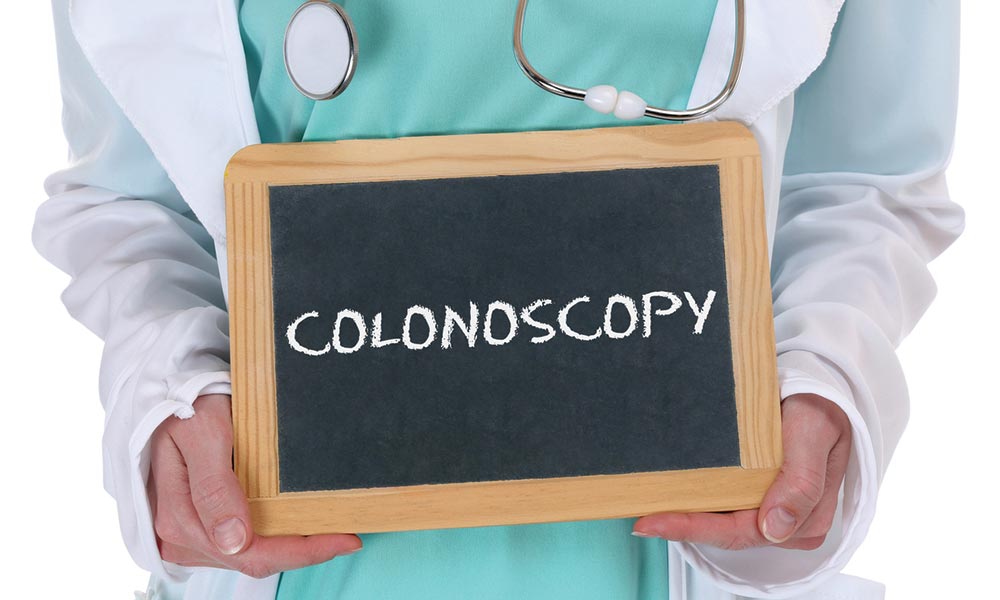Reliable Choices for Colon Cancer Screening

Colon cancer is one of the deadliest cancers affecting adults today, and part of stamping out colon cancer is catching it early. When it comes to discovering colorectal cancer at certain stages, the rate of survival is much higher in those who caught it early, which is what makes screenings so important. You may be wondering not only when to go for your first colon cancer screening, but which method to use. Read on to learn about the different types of colon cancer screening tests, and which may be best for you.
When to Be Screened
For a long time, the recommended age for the first colorectal cancer screening was at age 50, for both men and women, and most insurance policies still use 50 as the age at which screenings are covered.. However, in May 2018, the American Cancer Society revised its guidelines, saying those 45 and over should have a colon cancer screening. This is in part because so many younger people were being diagnosed with the disease. Because they were under the recommended screening age, the cancer wasn’t caught early in most cases and was diagnosed in the later stages. Stage I and II colorectal cancer have a 90 percent survival rate, while stage IV colon cancer has only a 12 percent survival rate. Screenings are absolutely vital for early detection.
If you meet criteria for certain other risk factors, you may want to talk to your physician about being screened even sooner than age 45. Some things to be concerned about include a personal history of diabetes or inflammatory bowel disease (IBD), or a family history (first-degree relative) of polyps, colon cancer, or IBD. If you have a first-degree relative who has had a colon cancer diagnosis, your doctor may even recommend a colonoscopy at a much younger age.
There are other risk factors, such as age and race (African-Americans are more predisposed to colorectal cancer than Caucasians), and risk factors you can modify to help prevent the incidence of colon cancer. Those who are overweight or obese, those who smoke, those who drink heavily, and those who have a high level of red meat consumption are more likely to be diagnosed with colon cancer. Part of your best preventative medicine is to eat a healthy, fiber-full diet, exercise, drink only in moderation, quit smoking, and curtail the red meat.
How to Be Screened
The word “colonoscopy” tends to make patients anxious, even though it’s relatively easy screening test to take. In fact, your entire colonoscopy lasts upward of 30 minutes in an office setting. Of course, there is prep the night before, but it’s not painful and changes in the prep means that most patients tolerate them easily.
Some patients are scared of a colon cancer diagnosis and may look toward a screening that emphasizes convenience, such as an at-home test. While at-home stool tests do have some efficacy when it comes to detecting blood in the stool, they fall short in detecting polyps. And a polyp is the number one indicator of a future diagnosis of colon cancer. A colonoscopy is the gold standard of colon cancer screening because it can not only detect cancerous and precancerous polyps, it can also remove them during the procedure. A recent study showed that at-home tests missed up to seven percent of cancer cases. This may sound like a small number, but when it comes to testing for cancer, you want to be sure.
Overall, there are four main ways to be screened for colorectal or colon cancer:
- Colonoscopy. A colonoscopy is a small tool that can view the entire colon. It can detect and remove polyps and is a very reliable indicator when it comes to colon cancer.
- CT colonography. This is a CT scan that uses computer technology to view both the colon and the rectum. While this screening cannot remove polyps, it is fairly reliable at detecting them, and thus, is an option for some patients.
- Fecal immunochemical test (FIT). This checks for blood in the stool that is a result of polyps or colorectal cancer. , but blood in the stool can be indicative of other gastrointestinal disturbances and does not necessarily indicate colon cancer. Positive results are referred to a gastroenterologist for a colonoscopy.
- At-home stool tests. These detect blood in the stool and DNA markers indicating cancer. These tests miss a significant number of precancerous polyps, therefore the test is recommended to be repeated at least every 3 years. Positive results are referred to a gastroenterologist for a colonoscopy.
Knowledge is the key to making informed healthcare decisions. Some tout at home screenings as private and convenient, but be sure to understand that they also will affect your out of pocket costs. Most insurance policies cover a colon screening beginning at age 50 with not out of pocket expense to the patient, if you use that benefit on a home test and are referred for a colonoscopy, you will be responsible for all copays and deductibles required by your insurance company. Don’t be lured in by the hype choose a colonoscopy, the gold standard when it comes to colon cancer screening.
If you need more information about colorectal cancer screening or would like to schedule your colonoscopy, request an appointment at Gastroenterology Consultants of Savannah. We offer five Georgia locations and one South Carolina location for your convenience and the best of care.